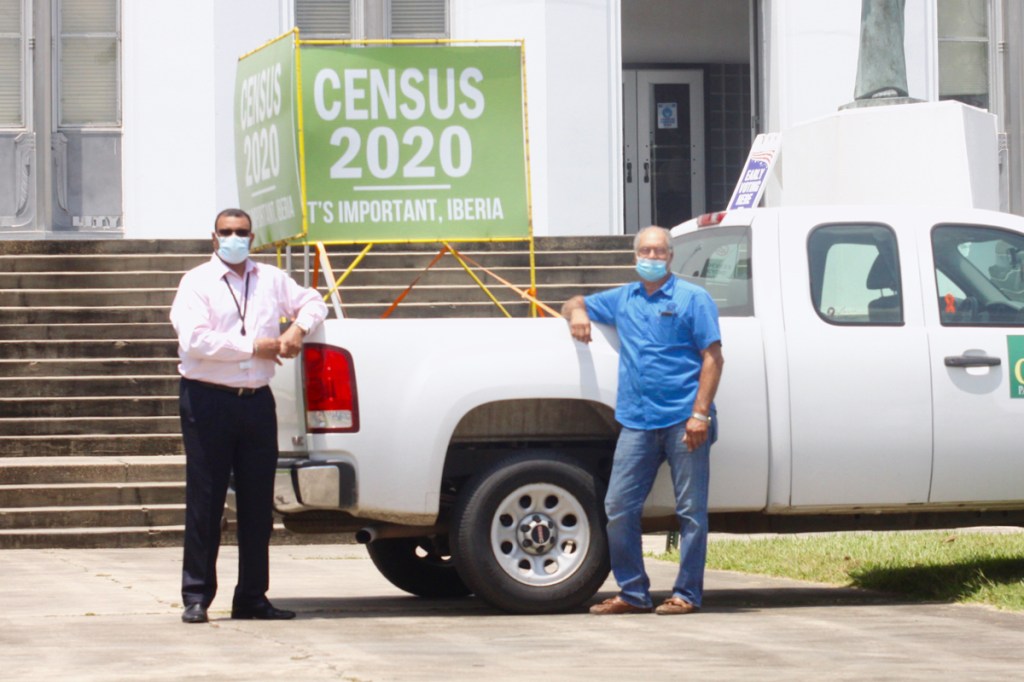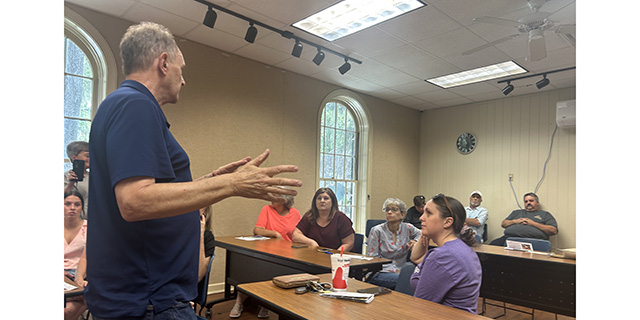Census takers finish training, prepare to hit the streets
Published 6:00 am Friday, August 7, 2020

- Iberia Parish President Larry Richard and Parish Council Chairman Eugene Olivier pose with a Census 2020 sign.
Census takers finished up their training in the Teche Area this week, preparing to hit the streets Saturday to knock on doors to make sure everyone is counted as part of the 2020 U.S. Census.
Iberia Parish President Larry Richard and Parish Council Chairman Eugene Olivier were at the Frances Romero Memorial Building in Coteau as training for about 300 census workers finished up Wednesday. It will be the job of those people to spread out across their communities and physically contact those people who did not respond to their census forms in the mail or register for the census online.
“This is important,” Richard said. “This is going to determine our funding for the state, it’s going to determine how our state is represented in Congress. It’s going to determine the resources that come to Iberia Parish.”
So far, estimates are that almost two-thirds — about 63 percent — of people nationwide have already completed their forms or registered. But that leaves more than 100 million people who have not yet been counted. Where those people are counted will have major repercussions on how the 435 seats in the U.S. House of Representatives are apportioned in 2021.
In Louisiana, St. Charles Parish has the highest response rate so far, at 66.4 percent as of July 23. Iberia Parish is at 57.7 percent, with St. Martin at 54.6 percent and St. Mary at 51.6 percent.
The census has had real implications for Louisiana in recent years. In 1990, the state lost one of its eight Congressional seats. It lost a second after the 2010 census, in the wake of the diaspora after Hurricane Katrina.
In 2010, Texas picked up four House seats. Florida gained two.
The results of the 2020 Census will also determine how hundreds of billions of dollars in federal funding will flow into communities every year for the next decade. That funding includes money for everything from school lunches to major road projects.
In the current political climate, participants at the training sessions were not willing to speak with reporters. This year, changes at the national level are making the count the most controversial in recent memory, if not the most contentious ever.
In recent months, the Trump administration has added a second deputy director slot at the top of the Census Bureau. That position was filled with a political appointee, Nathaniel T. Cogley. A former Republican political consultant, Adam Korzeniewski, was also moved to the bureau as an aide.
Those moves preceded Monday’s announcement that the census would be cut short, with the counting period ending on Sept. 30 instead of at the end of October as planned.
It also comes after the Trump administration fought to include a citizenship question on this year’s form, which opponents said would discourage non-citizens from being counted. Though the administration lost that battle in court, the apportionment numbers could still be affected if partisan politics were to be involved within the Census Bureau.
Under the Article 1, Section 2 of the U.S. Constitution, the census should count every person, not every citizen, and is specifically designed to guide the apportionment of representatives in the Congress.
Those who have not registered for the 2020 Census can do so online at https://2020census.gov/.





